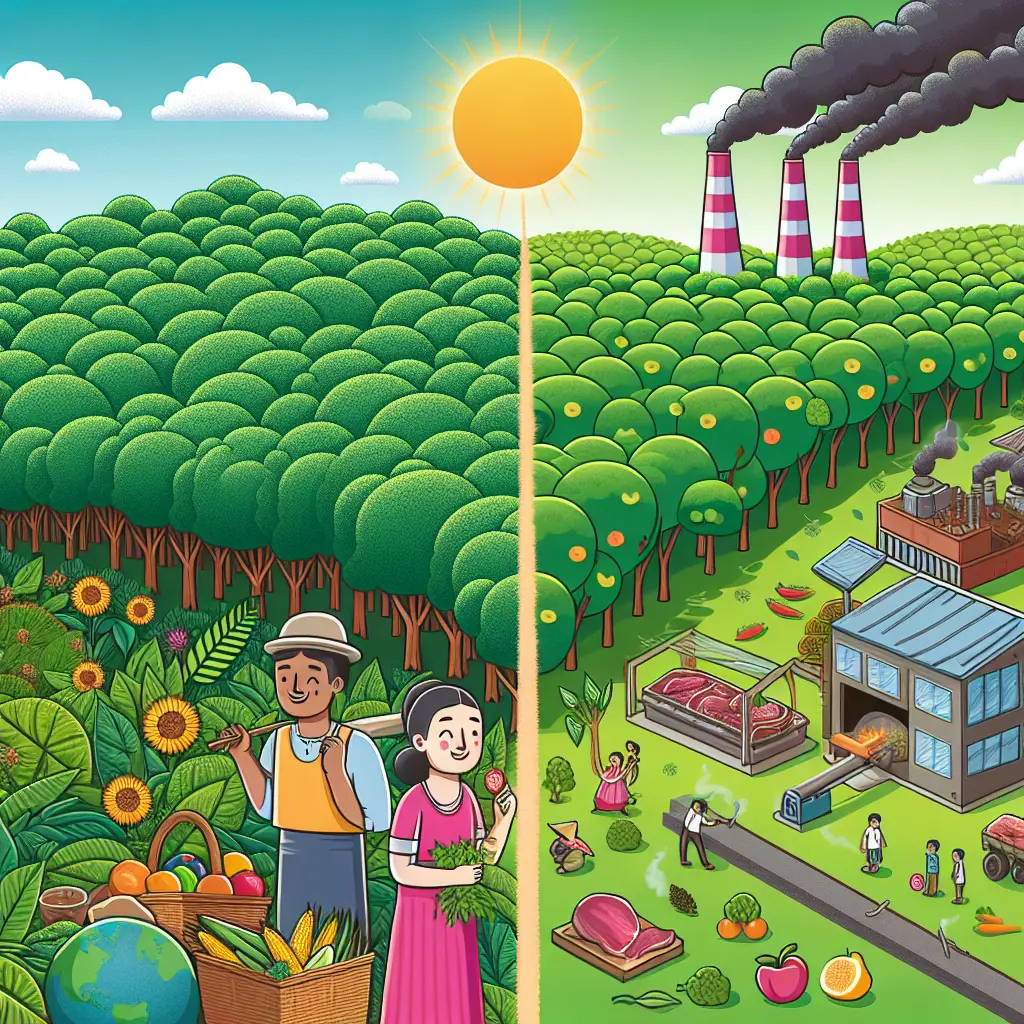
In recent years, the dialogue surrounding the urgent need to reduce our carbon footprint has intensified. Amid these discussions, veganism has emerged as a significant player. This lifestyle choice is not only about abstaining from animal products but is also a commitment to sustainable eating that has profound implications for our planet. In this blog post, we will delve into how adopting a vegan lifestyle contributes to reducing carbon emissions, exploring the environmental impact of veganism and its potential as a solution for climate change.
Understanding Veganism and Its Environmental Impact
Veganism involves excluding all forms of animal products from one's diet and lifestyle. This shift to a plant-based diet is motivated not just by ethical concerns regarding animal welfare but also by the benefits of veganism in mitigating global warming. By forgoing meat and dairy, vegans help decrease the demand for industries that are major contributors to greenhouse gas emissions.
The environmental impact of veganism is significant. According to a comprehensive study published in Science, moving away from meat and dairy consumption can reduce an individual's carbon footprint from food by up to 73 percent. The research underscores that plant-based diets are essential in reducing carbon emissions and managing resources more efficiently.
Carbon Savings with a Vegan Diet
A significant portion of global emissions comes from the agriculture sector, particularly meat and dairy production. Livestock farming is not only resource-intensive, requiring large amounts of water and feed, but it also contributes to deforestation and loss of biodiversity. By adopting a vegan diet, one contributes to greenhouse gas reduction since plant-based foods generally require fewer resources and result in lower emissions per unit of food produced.
For instance, producing a kilogram of beef emits 60 kilograms of greenhouse gases, while emitting less than 4 kilograms for an equivalent amount of protein from plants like beans or lentils. These figures from the United Nations' Food and Agriculture Organization highlight the stark contrast in the carbon footprint between meat-based and plant-based diets.
The Global Impact of Meat Consumption on the Environment
The impact of meat consumption on the environment extends beyond just greenhouse gas emissions. Meat production is one of the leading causes of deforestation, especially in regions like the Amazon rainforest. This not only contributes to increased carbon dioxide levels in the atmosphere but also destroys habitats for millions of species, pushing them towards extinction.
Moreover, livestock farming is a significant contributor to water pollution due to runoff from manure and fertilizers, leading to eutrophication in aquatic ecosystems, which can cause dead zones and loss of aquatic life.
Veganism for Sustainability
Embracing veganism is not just about personal health but also about promoting sustainability. Eco-friendly diets are gaining traction as more people become aware of their dietary choices' environmental repercussions. Sustainable eating involves choosing foods that are not only healthy but also have a low environmental footprint.
A shift towards plant-based diets could significantly alleviate pressure on natural resources by reducing land use and water consumption. It allows for more efficient use of arable land, potentially feeding more people with fewer resources.
Recent Trends and Innovations
The rise of veganism has also sparked innovations in food technology, including the development of plant-based alternatives that closely mimic the taste and texture of meat. This makes it easier for people to transition to a vegan diet without sacrificing the flavors they love. Moreover, the culinary world is embracing this change; for example, afternoon tea treats featuring vegan options are becoming more common, as seen in lists curated by readers of Wirral Globe and Mid Cheshire Guardian.
In another vein of wellness and sustainability, interest in supplements like Lion’s Mane gummies has spiked as individuals look for plant-based options that support cognitive health, reflecting a broader trend towards holistic, health-conscious living.
Conclusion
The benefits of adopting a vegan lifestyle extend far beyond individual health, encompassing significant advantages for our planet. By reducing our reliance on meat and dairy products, we can decrease our carbon footprint, alleviate pressure on global resources, and play a part in mitigating climate change. The impact of meat consumption on the environment is undeniable, and veganism presents a viable solution through sustainable eating practices.
As we continue to confront the realities of global warming, it becomes increasingly clear that our dietary choices play a crucial role in shaping our world's future. Veganism is more than just a diet; it's a commitment to live responsibly and ethically in a way that respects our planet and its inhabitants.
Thank you for joining me on this exploration of how veganism can help us forge a more sustainable future. Let’s continue making choices that promote health, sustainability, and respect for all life on Earth.
Author: Lucas Sheridan